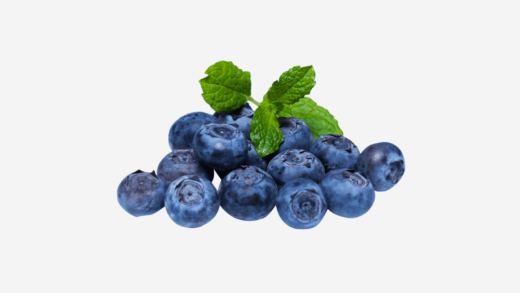What is Papaya? Papaya is a tropical fruit native to the Americas. It is oblong in shape and has a soft, juicy flesh that is orange or pink in color. The skin of a papaya is thin and can be either green or yellow, depending on its ripeness. Papaya is a good source of vitamin C and other nutrients, and it has a sweet, slightly musky flavor. It is often eaten raw, but it can also be used in a variety of dishes, such as salads, smoothies, and sauces.
What is the source of Papaya?
Papaya is native to the tropical regions of the Americas, including Mexico, Central America, and parts of South America. It is grown in many tropical and subtropical countries around the world, including India, Indonesia, the Philippines, and Thailand. Papaya plants require warm temperatures and plenty of sunlight to grow and thrive, and they are typically grown in tropical and subtropical areas with long growing seasons. Papaya plants are usually propagated through seeds or cuttings, and they can be grown in a variety of soil types, as long as the soil is well-draining and fertile.
Papaya Nutrients per Serving
Papaya is a good source of several nutrients, including vitamin C, vitamin A, potassium, and fiber. Here is a breakdown of the nutrients in a 1-cup (145-gram) serving of papaya:
- Vitamin C: 88.3 milligrams (mg), which is 147% of the Recommended Dietary Allowance (RDA)
- Vitamin A: 2,067 International Units (IU), which is 43% of the RDA
- Potassium: 257 mg, which is 7% of the RDA
- Fiber: 2.8 grams (g)
Papaya also contains smaller amounts of other nutrients, such as folate, vitamin E, and calcium. It is low in calories and contains no cholesterol or fat.
It’s worth noting that the nutritional content of papaya can vary depending on factors such as the variety of the fruit, its ripeness, and how it is prepared. For example, papaya that is more ripe will generally be sweeter and have a higher sugar content than less ripe fruit. Similarly, papaya that is peeled and seeds removed will have a different nutritional profile compared to papaya that is consumed with the skin and seeds intact.
Papaya Nutrition
Papaya is a nutritious fruit that is rich in vitamins, minerals, and other beneficial compounds. In addition to the nutrients listed in the previous answer, papaya is also a good source of antioxidants, which are substances that can help protect the body against damage from free radicals, which are unstable molecules that can contribute to the development of chronic diseases such as cancer and heart disease.
One of the most abundant antioxidants in papaya is lycopene, which is a pigment that gives the fruit its characteristic orange or pink color. Lycopene is a type of carotenoid, which is a type of pigment that is found in a variety of plants and is believed to have a range of health benefits.
Papaya is also a good source of papain, which is a protein-digesting enzyme that is found in the fruit’s latex and can help to break down proteins in the body. Papain is often used as a digestive aid and is also used in a variety of other applications, including the production of some medications and supplements.
Overall, papaya is a nutritious and delicious fruit that can be enjoyed as part of a healthy and well-balanced diet.
Health Benefits of Papaya
Papaya is a nutritious fruit that has a variety of health benefits. Some of the potential health benefits of papaya include:
- Boosting immune function: Papaya is a good source of vitamin C, which is an important nutrient that helps to support the immune system. Vitamin C helps to protect cells from oxidative stress and can help to reduce the severity and duration of colds and other respiratory infections.
- Promoting healthy digestion: Papaya contains the enzyme papain, which can help to break down proteins and improve digestion. In addition, papaya is a good source of fiber, which can help to keep the digestive system regular and prevent constipation.
- Supporting heart health: Papaya is a good source of potassium, which is a mineral that helps to regulate heart function and blood pressure. Adequate intake of potassium is important for maintaining a healthy heart and reducing the risk of heart disease.
- Reducing inflammation: Some research suggests that compounds found in papaya, such as choline and lycopene, may have anti-inflammatory effects and may help to reduce the risk of chronic diseases such as cancer and heart disease.
- Improving skin health: The vitamin C and vitamin A in papaya may help to protect the skin against damage from the sun and other environmental factors. In addition, papaya contains compounds that may help to reduce the appearance of fine lines and wrinkles, making it a popular ingredient in some skincare products.
It’s worth noting that more research is needed to fully understand the potential health benefits of papaya and to determine the optimal intake of this fruit.
How to Use Papaya
There are many ways to incorporate papaya into your diet and use it in cooking and other applications. Here are a few ideas:
- Eat it raw: One of the most common ways to enjoy papaya is to simply eat it raw, either on its own or as part of a fruit salad. You can also blend it into smoothies or use it as a topping for oatmeal or yogurt.
- Add it to salads: Papaya can be a refreshing and flavorful addition to salads. You can slice it and add it to a mixed greens salad or combine it with other tropical fruits, such as mango and pineapple, for a sweet and colorful salad.
- Use it in sauces and marinades: Papaya can be puréed and used as a base for sauces and marinades. For example, you can blend papaya with lime juice, garlic, and cilantro to make a flavorful sauce for grilled chicken or shrimp.
- Make papaya smoothies: Papaya is a delicious and nutritious addition to smoothies. You can blend it with other fruits, such as berries or banana, and add a splash of milk or yogurt for a tasty and refreshing drink.
- Use it in baked goods: Papaya can be used as an ingredient in a variety of baked goods, such as cakes, breads, and muffins. It can add a tropical twist to traditional recipes and provide a natural sweetness.
It’s worth noting that papaya is best used when it is ripe, as it will be sweeter and more flavorful. You can tell when a papaya is ripe when it is slightly soft to the touch and has a yellow or yellow-orange skin. If the papaya is still green, you can leave it at room temperature to allow it to ripen, or you can place it in a paper bag with a banana or apple to speed up the process.
Papaya Healthy Recipes
Here are a few healthy recipe ideas featuring papaya:
- Grilled papaya with honey and lime: Cut a papaya in half and remove the seeds. Grill the papaya over medium heat for 3-4 minutes per side, or until it is slightly charred and tender. Drizzle with honey and lime juice and serve as a healthy dessert or snack.
- Papaya smoothie bowl: Blend together papaya, frozen banana, Greek yogurt, and a splash of milk or coconut water to make a thick and creamy smoothie. Pour the smoothie into a bowl and top with your favorite toppings, such as granola, nuts, and fruit.
- Papaya and shrimp salad: Combine sliced papaya, cooked shrimp, mixed greens, and a dressing made with lime juice, honey, and olive oil. Top with chopped nuts or seeds for added crunch.
- Papaya salsa: Mix together diced papaya, tomato, red onion, jalapeno pepper, and chopped cilantro. Add a squeeze of lime juice and a pinch of salt, and serve the salsa as a topping for grilled chicken or fish.
- Papaya and avocado toast: Mash together ripe papaya and avocado, and spread the mixture over slices of toasted bread. Top with a sprinkle of chili flakes or a drizzle of honey for extra flavor.
Side Effects of Papaya
Papaya is generally considered to be safe when consumed in moderation as part of a healthy diet. However, some people may experience side effects after consuming papaya, particularly if they are allergic to the fruit or if they consume large amounts.
Some possible side effects of papaya include:
- Allergic reactions: Some people may experience an allergic reaction to papaya, which can cause symptoms such as skin rash, hives, itching, swelling, difficulty breathing, and anaphylaxis (a severe allergic reaction that can be life-threatening).
- Digestive issues: Papaya contains the enzyme papain, which can help to break down proteins and improve digestion. However, in some people, consuming large amounts of papaya or papaya supplements may cause digestive issues such as bloating, gas, and diarrhea.
- Interactions with certain medications: Papaya may interfere with the action of some medications, such as blood thinners and nonsteroidal anti-inflammatory drugs (NSAIDs). It is important to talk to your healthcare provider if you are taking any medications and are considering adding papaya to your diet.
- Latex allergy: Some people who are allergic to latex (a rubber-like substance found in some plants) may also be allergic to papaya. If you are allergic to latex, it is important to avoid papaya and other fruits that may contain allergens related to latex, such as bananas and avocados.
It’s worth noting that the side effects of papaya may vary depending on the individual and their health history. It is always a good idea to talk to your healthcare provider if you have any concerns about adding papaya to your diet.
Health Benefits of Eating Papaya Seeds
Papaya seeds have a number of potential health benefits. Some of these benefits include:
- Antimicrobial properties: Some research suggests that papaya seeds have antimicrobial properties, which means they may help to kill or inhibit the growth of harmful microorganisms.
- Anti-inflammatory effects: Papaya seeds contain compounds that may have anti-inflammatory effects, which could help to reduce inflammation in the body.
- Digestive aid: Papaya seeds are rich in enzymes that may help to improve digestion and alleviate digestive issues such as bloating and constipation.
- Heart health: Some research suggests that papaya seeds may help to lower blood pressure and reduce cholesterol levels, which can be beneficial for heart health.
- Kidney health: Some research suggests that papaya seeds may help to improve kidney function and reduce the risk of kidney stones.
It’s important to note that much of the research on the health benefits of papaya seeds is preliminary and more research is needed to fully understand their potential health effects. It is also important to use caution when consuming papaya seeds, as they can have a strong, bitter taste and may cause gastrointestinal side effects in some people when consumed in large amounts. As with any food, it is important to consume papaya seeds in moderation as part of a balanced diet.
A Final Word on Adding Papaya to Your Diet
Papaya is a nutritious and tasty fruit that can be a great addition to your diet. It is high in antioxidants, vitamins, and minerals, and has many potential health benefits. Some of these benefits include aiding in digestion, reducing inflammation, and improving heart health.
To add papaya to your diet, you can simply cut it up and eat it as a snack or add it to your meals. You can also use it in smoothies, salads, or as a topping for toast or yogurt. Just be aware that papaya can have a strong flavor, so you may want to start with small amounts and adjust to your taste preferences.
It is also important to note that some people may have an allergic reaction to papaya, so if you are unsure if you are allergic or have never tried it before, it is a good idea to start with a small amount and see how your body reacts.
Overall, incorporating papaya into your diet can be a delicious and healthy choice. Just be sure to enjoy it in moderation as part of a balanced diet.
Frequently Asked Questions on Papaya
1. How do I select a ripe papaya?
Ans: Look for papayas that are slightly soft to the touch and have a sweet aroma. Avoid papayas that are hard or have blemishes or bruises.
2. How do I store papaya?
Ans: Ripe papaya can be stored in the refrigerator for a few days to extend its shelf life. Unripe papaya can be stored at room temperature until it ripens.
3. Can I eat the skin of a papaya?
Ans: The skin of a papaya is edible, but it can be tough and bitter in taste. It is typically peeled and discarded before eating the fruit.
4. Can I eat the seeds of a papaya?
Ans: Papaya seeds have a bitter taste and are usually discarded. However, some people choose to consume them due to their potential health benefits. It is important to use caution when consuming papaya seeds, as they may cause gastrointestinal side effects in some people when consumed in large amounts.
5. Are there any potential health risks associated with papaya?
Ans: Some people may have an allergic reaction to papaya. Symptoms of a papaya allergy can include itching, swelling, hives, and difficulty breathing. If you experience any of these symptoms after consuming papaya, seek medical attention immediately. It is also important to use caution when consuming papaya seeds, as they may cause gastrointestinal side effects in some people when consumed in large amounts.










